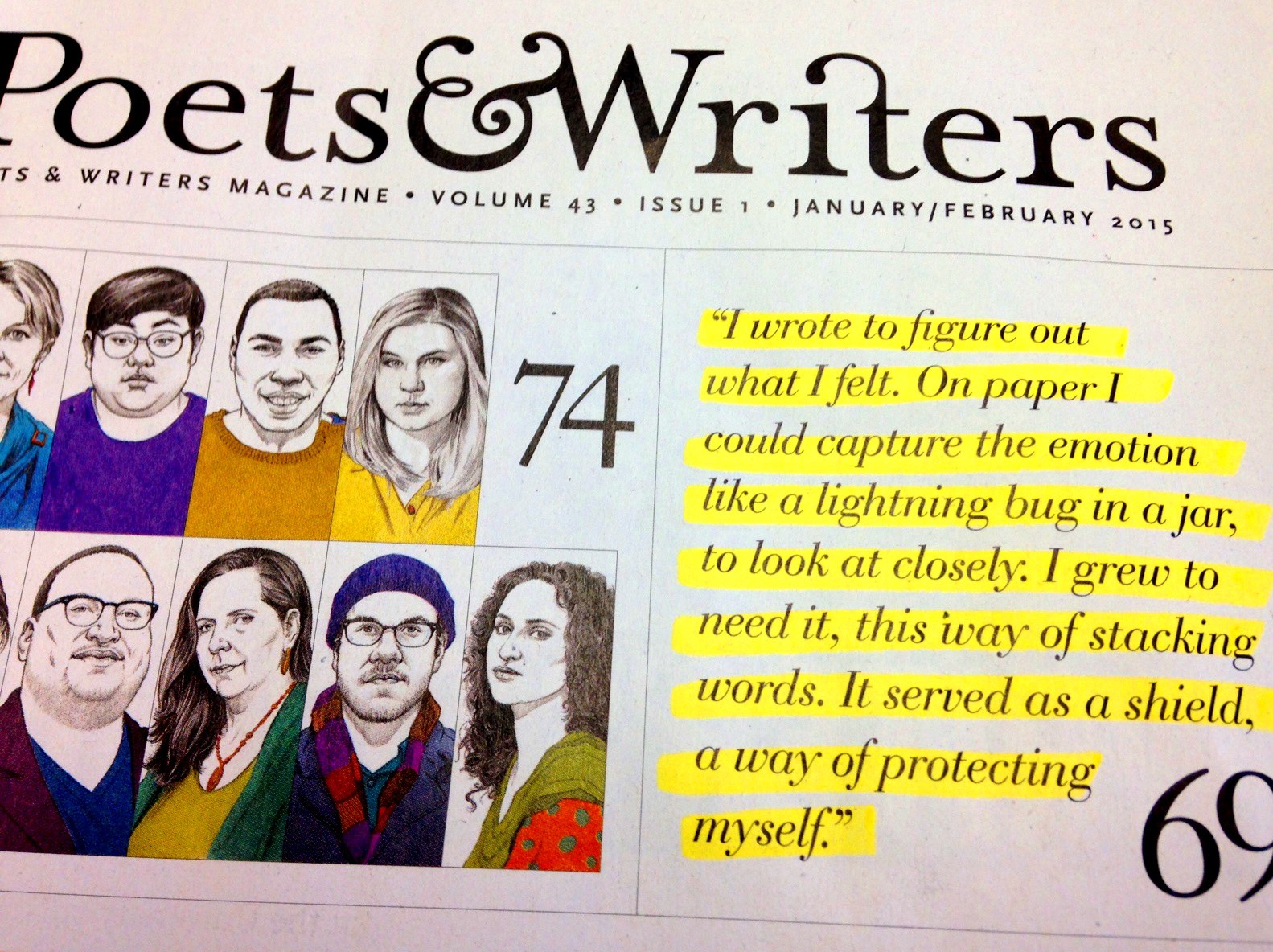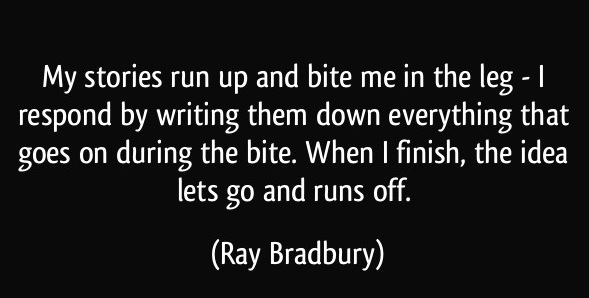Sometimes when I read Poets & Writers magazine, I come across an article that is so good that I must tear it out for safe keeping. I put it in a folder labeled “writing stuff.” In the latest issue, I tore out “Quieting the Mind” by Sarah Herrington. And then I promptly followed her on Twitter.

In the article, she writes about how she did a 10-day silent Buddhist meditation retreat and, by day 2, hid in a bathroom stall with her contraband–a pen and paper–because she HAD to write. I know the feeling.
“Halfway through, I saw how ridiculous I must have looked, hiding on that cold tile, gripping a pen like a fiend. I realized that while I meant to check in with myself through journaling, I was actually checking out. Afraid of the intensity of this new experience, I thought I could sort it all into vowels and consonants. Yet instead of helping me gain insight, documenting was acting as an escape. Like an Instagram user snapping constant photos on a trip instead of looking around, enjoying the moment, I was so busy chronicling that I wasn’t being.”
She decides to tear up the paper and ditch the pen, striving to “feel directly rather than shape those sensations into words.” And she’s successful–with the whole “feeling directly” thing. I know I would have had a hard time with it.
From the time I was really young, I used writing to understand myself and my world. There was a lot of navel-gazing going on. My first book was a memoir. Even in fiction stories, I was really just writing about parts of myself. I’d just change the hair color of the main female character as a way to say, “See, it’s not ME!”
In addition to fiction, I journaled ferociously. I was dependent on journals between the ages of 8 and 28 (two decades!). I couldn’t imagine NOT having that place to vent all my emotions. But I was really just controlling my universe with all that scribbling. I was trying to fit experiences into meaningful boxes because I couldn’t just let them exist with all the vagueness that is life.
Sarah writes: “I remember inventing poems at age fifteen, sprawled on shag carpet in my flowered bedroom in upstate New York. Then, writing helped me understand feelings so big I couldn’t make sense of them unless I had a pen. I dismantled them one by one: sadness, anger, even happiness.”
Yes, I get this. It’s no wonder that I journaled so much during years of my life that were particularly difficult. In my late twenties, I came to a much better place and, not so surprisingly, I stopped journaling. It was gradual. I remember finishing a paper journal and just not buying a new one. [Side note: I always wrote in hard copy journals, never online. I saved every single journal, deeply attached to what I wrote, though I never actually went back and read them. When I was a teenager, I asked my parents for fireproof safes for Christmas to store them. I still have them–the safes and the journals. I’m not sure if I should keep them or ditch them.]
Then I started journaling online by typing up thoughts in an email and sending it to myself. It was really just a way to vent. Then, I stopped doing that. I just didn’t feel the same need to make sense of things like I once did. I wasn’t so lost anymore. And I was more okay with surrendering to the world, not trying to make sense of every little event and feeling. I was giving up control.
Around the time I gave up my journaling addiction, my fiction changed, too. My novels evolved to be stories that were nothing like my real life. I even experimented with male narrators. These days, I can say that my fiction is truly fiction. Sometimes, a struggle or scenario from my personal life will weave its way in to a story, but it’s usually subconscious and probably recognizable only to me.
What hasn’t changed is that I still need to write. It’s not so much about myself or my daily life, but I still need it. I mentioned to my mom the other day that I’d started writing a new novel and she said, “That’s ambitious of you.” I don’t see it that way though. Ambition implies some premeditation and an end goal. I really haven’t thought that far ahead. In fact, it doesn’t make much sense for me to write something new when I have to do final edits on my existing book. There’s just this story in my head and I have to write it. I just have to. It’s a compulsion. Giving in to it and starting to eek out the story gives me a happiness I haven’t found with anything else.

Wow. This is a thought provoking post, Kim. I don’t think I’ve ever thought about how we might use writing to control our lives. Not trying to make sense of every little event and feeling DOES give us a huge amount of freedom. I think I’m going to need to print off this post and keep it in my own “writing stuff” folder. 🙂
I would take it as a huge compliment to be in someone’s “writing stuff” folder 😉 Thanks, Shari!
That’s really interesting – both the story of the writer at the Buddhist retreat and your own story of the role writing plays for you. When I used to write quite a bit, mainly in my college years and a few years after, I felt like I used writing to grapple with experiences that I’d had. Dealing with the feelings by transforming the experience into a creation.
Right, and I think there is something totally therapeutic and necessary about it. I got a little compulsive with it. It’s nice to just let things be and not need to dissect them so much.
Yes, yes, yes! I’m not a huge journal-er (compared to you) but the times I have journaled have been times in my life where I was overwhelmed with life that I couldn’t understand at the time — I had to write to sort through it and find myself… and I’m so glad I did. I feel a similar compulsion toward creating. Lovely post.